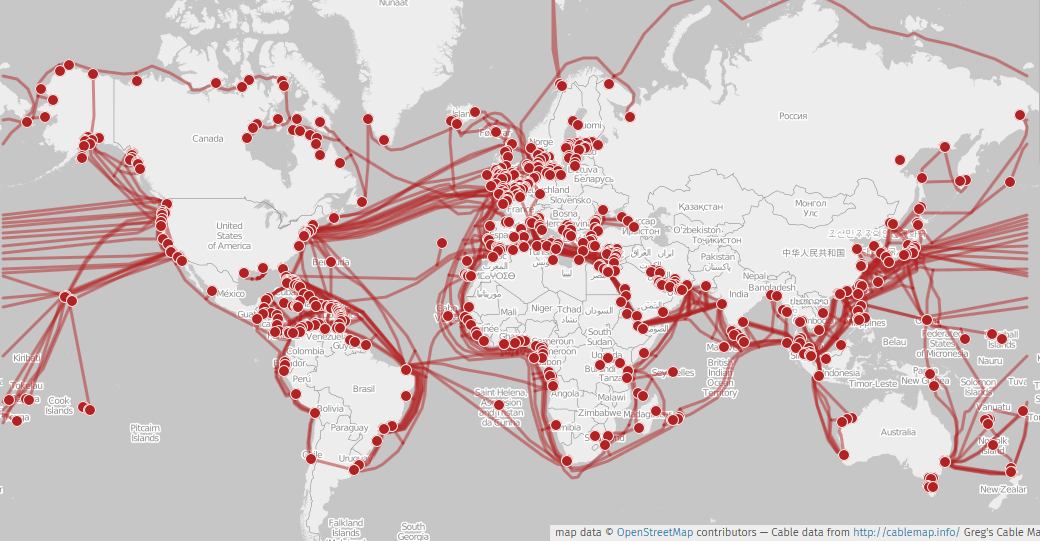I (don’t) want to be a Digital Nomad
For a long time, I wanted to be more like a digital nomad: traveling the world and working wherever I got wifi, no need for an office, sitting at the same desk 9–5, week after week. But after some trial runs, my views changed.
Digital nomadism is often associated with passive income, but this was never a priority to me.
In a typical 9–5 office environment, we have to deal with a lot of different tasks and situations that might not be as easy to do as a digital nomad. Or we have to find a way to change our workflow to adapt.
Table of Contents
To give this story a little more context, I should tell a little bit about myself first: I’m 36 at the time of writing, and run a small 4 people software company together with the founder. This article will concentrate on the travel & work aspect.
Being a digital nomad
Many people want to live a more location-independent lifestyle as digital nomads. Working remotely with a great quality of life, for less money in places where other people go on vacations, and travel to a new destination when you feel like it.

People tend to fade out the cons if the pros are too tempting, and set themselves up for disappointment when they’re finally to achieve their aspired goals. It happened to me after multiple 4-weeks trial runs to dip my toes into the water of remote working and living.
The right job
Not every job is a good match for digital nomadism. But being a software developer and business owner with not much 1:1 client contact makes it really easy for me to do it, as long as I have a stable internet connection.
Without going full-time digital nomad, the actual projects and work-loads I can work on should fit in the time frame and shouldn’t need much direct outside support from my colleagues at home in a different timezone.
The bane of meetings
Meetings ranked:
1. No meeting
2. An email
3. 1:1
4. A quick, well-organised meeting with maximum 6 people
That is it. All other meetings are terrible.
– @nich_r_cameron
100% this.

Meetings can be productivity killer #1.
Yes, some meetings are necessary or unavoidable, to build a common ground or a better project overview. But most meetings would be much better and more actionable as an email or JIRA ticket.
Just because it’s easier for someone to call for a meeting doesn’t mean the other participants share the same sentiment. You having time to hold a meeting doesn’t mean the others got it, too. Many meetings are just “feel good” meetings for stakeholders, without an actual agenda, that steal time, cost money, and accomplishing very little.
As a digital nomad, you should try to reduce meetings to an absolute minimum. Especially if you don’t share a compatible timezone with the other participants. Thanks to Slack/Hangout/Facetime/Skype, you can participate in meetings from anywhere, if you must. But that still doesn’t eliminate all the negative aspects of holding a meeting in the first place.
Phone calls
Another productivity killer.
I got a phone in my office, but I don’t use it if not absolutely necessary. Just like meetings, a phone call is very cheap for the caller but can be very costly for the other side of the conversation. It’s understandable that for many clients, every little thing feels like an emergency that requires immediate attention.
We should always try to respect the importance of our clients’ problems, even when we might think otherwise about them. If you’re able to build another line of defense, in my case, my colleagues back in the office in the same timezone as our clients, do it!
They know how to reach me in a real “life or death” business-emergency-scenario if they can’t handle the problem without me. An extra layer of protection is a great way to improve your remote experience, without feeling guilty about neglecting your clients.
Even though I recommend not to make yourself available for (non-emergency) calls when on the road. Acquiring a SIM card in another country is easy. And you want one for internet connectivity anyway.
Internet connectivity
It’s the backbone of our work, more so if you’re a digital nomad.
Without a reliable internet connection, it can be really challenging to run a web-based business or be location independent. Even back home, there’s not much to do during an internet outage. We even got a second ISP with automatic fail-over to mitigate any local outages.
Not every country has free public wifi on every corner. A SIM card with a data plan is an absolute MUST while being a digital nomad. Thankfully, almost anywhere in the world, data plans are cheaper than in Germany, so no worries for me here. Do yourself a favor and get a data SIM as soon as possible.
Usually, you can buy a SIM card at the airport. Or for a small premium, you can get one before you travel, to have internet the moment you step out of the plane. Or it can be delivered to the airport, and you collect it there.
Do your research first, there are often many different options regarding available data, restrictions on VoIP, with or without a callable phone number, etc. Most of the time I get a data-only SIM and put it in my primary phone. As I mentioned before, no need for being available for phone calls.
Beating the speed of light
At coworking spaces, the connections are usually quite fast, 100–200 MBit down and up. So we got a reliable internet connection, and everything is fine now. Except we can’t beat the laws of physics.
Prof. Farnsworth: These are the dark matter engines I invented. They allow my starship to travel between galaxies in mere hours.
Cubert: That’s impossible. You can’t go faster than the speed of light.
Prof. Farnsworth_: Of course not. That’s why scientists increased the speed of light in 2208.
— Futurama, season 2 episode 10
It would be great if we wouldn’t have to wait another 189 years and get a faster light speed right now.
Most of my company’s servers are located in Germany, or at least in Europe. Routing is a complicated topic, but more distance and more hops to reach your destination means longer round-trip times, resulting in laggy connections.
Germany: 90km with 9 hops
Thailand: 8800km with 14 hops
Japan: 9500km with 15 hops
Even though the hops count is only increased by a factor ~1.6, the distance increases by factor ~100! With the speed of light being roughly 300 km/ms you can see why why ping times also increase.

The time needed to travel the extra distance and hops add up to almost unbearable SSH sessions with a lot of input lag. Websites without a geo-optimized CDN will feel really sluggish compared to what you’re used to. It’s usable if you have to, but it’s not something you want to work with all day long.
It’s not necessarily a big problem, depending on your requirements. But if you need to work a lot on distant servers, it can be a constant source of frustration.
Ergonomics
The ergonomics of my workplace will catch up with you if it’s neglected for too long. Not having a pleasant and comfortable chair to sit in while working is really doing a number on my back. Continually looking down on my laptop screen isn’t helping my neck and back either.
I haven’t seen many non-office places with really good ergonomic chairs. Even coworking spaces often lack chairs that aren’t on the cheap side of the spectrum and that aren’t horrible for your back. Without a good chair, my back and shoulder region starts to hurt after about an hour of work, and trust me, it’s not that good for your productivity to always be in pain…
Back home, I’ve got an Herman Miller Aeron chair, so I might be a little spoiled regarding excellent office chairs. But there are so many other nice options between that horrible wooden monstrosity without any cushion or back support you call a chair, and a > 1000 € ergonomic office chair.
Many digital nomads are carrying a Roost-stand to elevate the screen position to a more ergonomic height, but then you definitely need an external keyboard. I prefer a good keyboard, especially if you have a butterfly MacBook Pro with its unbearable keyboard.
But in my opinion, you look like kind of an idiot if you’re using such a setup in a coffee shop instead of a dedicated workspace. And even at coworking spaces I’ve visited in Tokyo, I’ve never seen a single person using a stand or external keyboard. On the other hand, in the coworking spaces in Thailand, a lot of people had elevated setups, so I could use my stand without looking weird, too.
Hardware
Another limiting factor is the hardware I can carry around with me. Due to my affliction of having to work on an iOS app, most of the time, I’m forced to take my MacBook Pro with me, which I hate, and not my trusty Linux laptop.
Of course, I could have brought 2 laptops, but then I wouldn’t have any space/weight left for clothes, because I like to travel without checked-in luggage. On my last trial run I was only allowed to bring 7kg with me, which was quite a stretch. But on my next trip, I’m allowed to bring up to 18kg of cabin luggage, so even 2 laptops would be an option.
In my regular office, I have a trusty Linux desktop with a 25” QHD monitor and a real mechanical keyboard. Using only a laptop is a significant impact on my productivity and takes some fun out of my work, which is important to me. Some coworking spaces rent out displays, or I could use my iPad as second screen, at least for my MacBook Pro, but it’s still not the same kind of productive setup as in my office.
Geo-Arbitrage
Many digital nomads decide to get the best geo-arbitrage. This means they are earning their income with first-world-projects in a second- or third-world country to maximize the purchasing power per dollar.
That’s why locations like Chang Mai in Thailand or Bali in Indonesia became hotspots. To get the most out of your money. And the accompanying greater concentration of digital nomads and available coworking spaces.
Still, I prefer countries more to western standards, even though if it means spending more money. So I ended up multiple times in Japan, and only once in Thailand, to give it a try.
Japan is my favorite place, even though it’s way more expensive than the alternatives. The biggest cost is rent, I stay mostly in cheap business hotels on a weekly basis, because I prefer my own room and bathroom, compared to hostels, etc.
But it’s the most expensive thing about my trial runs, the rest is actually quite affordable, even in Tokyo. My daily costs aren’t that much higher than in Germany. Most of the time, even cheaper, and with a lot more conveniences.
About Wolves and Penguins
Working exclusively remote can mean becoming a lone wolf. No face-to-face contact with your colleagues, no participation in meetings due to time zones, mostly asynchronous communication.
This actually sounds great to me!
I’m not into talking to people, even the ones I know. But some kind of occasional social interaction might be nice, besides the absolute minimal societal requirements like “good morning” or “bye”.
I’m sure there are many interesting people in the coworking spaces. But knowing me too well, I can be a socially awkward penguin, tending not to initiate social interaction if not particularly necessary. That’s one of my problems I really have to work on. Which means it can be quite lonely.
A few times I tried to meet new people at “international mixer” events I found on Meetup, and actually had some great times meeting interesting people. But it takes a lot out of me to open up, and I end up throwing myself into my work instead.
Asking for help
I’m a morning person. Last time in Thailand, I was among the first people at the coworking space, sometimes even the first one. This means my working hours have minimal overlap with my colleagues back home, thanks to the +6 hours time difference between Germany and Thailand.
If I have a problem, I either have to rely on asynchronous communication and wait for a response, maybe on the next day, or my problems are my problems alone.
As I’ve written before, I mostly prefer asynchronous communication like emails or tickets, especially with customers. It reduces perceived urgency. But regarding actively working on a project, it might be nice to have a more direct line with my colleagues.
I don’t need a red telephone that is well-staffed 24/7. And I don’t want to disturb my colleagues’ flow or force a context switch on them if not necessary. But being a lone wolf in another time zone means being stuck with your problems. I’ve worked hard to reach the point where I need help, but can’t get any. So I need to switch context myself.
This often feeds slowly on my cognitive capacity for the day, so I try to avoid it if possible. The easiest way is tackling problems that you can solve all by yourself if necessary. But it’s not as easy as it sounds.
Conclusion
It would be great to travel the world while working. All my trial-runs showed me that it’s nice for a while, and should even be doable for a more extended period. But the downsides would impact my performance, my social interactions, and my back would be ruined without an actual office chair, ergonomic monitor setup, and external keyboard, etc.
This doesn’t mean I won’t do it again. In March I’m going to spend another month in Japan, combining some light traveling with work. It’s great that I can work from everywhere in the world, and it helps me to get some distance from it all and gain new perspectives. I just need the contrast to my regular work life, not a full replacement.
Maybe I’m more of a part-time digital nomad.
And who would take care of my 3 turtles back home?
